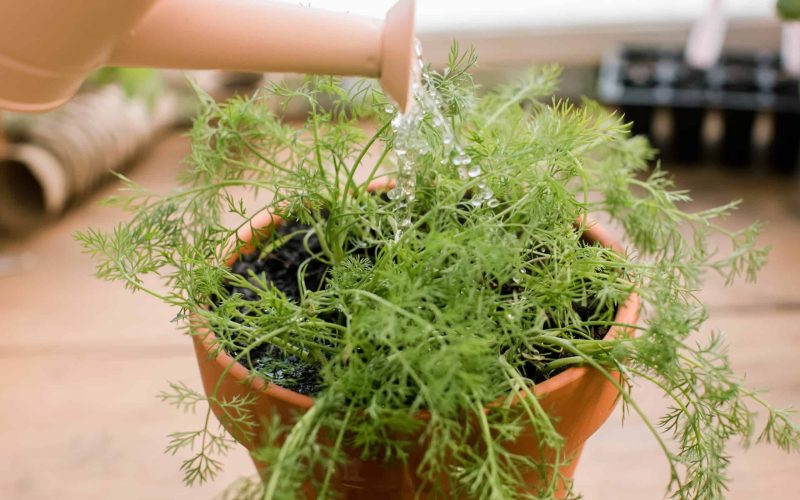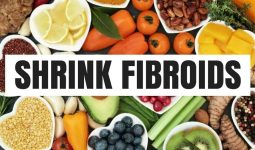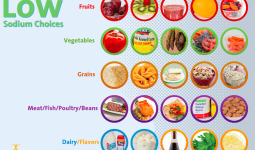When people hear of dill, all that comes to mind is flavoring pickles or a vegetable that kids don’t like. Dill is more than all these, it is a highly nutritious food that offers amazing health benefits when incorporated into your diet.
For centuries, dill has been used as both food and medicine. Though the most common thing we know about dill is dill pickles served with grilled burgers and sandwiches, there are more ways of consuming dill.
Dill seeds, fresh dill, and dill weed oil are consumed also and used to flavor food. They are even used as ingredients in liqueurs. Dill is also used to make perfumes, lotions, creams, detergents, and soaps.
Health-wise, dill offers a lot of benefits. It is a rich source of antioxidants, iron, manganese, and calcium. This vegetable also has powerful antiviral and anti-inflammatory properties.
All these are responsible for the medicinal properties of this plant.
History Of Dill
Dill belongs to the same family as parsley, bay leaf, and cumin and native to the Mediterranean region. It has been used since ancient Rome and Greek times as both spice and medicine.
The word “Dill” means to soothe or calm and this has its origin in the plant’s ability to calm colicky infants and troubled stomach.
The earliest available record of dill as a medicinal plant was found in Egypt 5000 years ago. The plant was referred to as a “soothing medicine” then.
The Babylonians were known to have grown dill in their gardens around 3,000 B.C.E. It was also a common and widely used item in Greek culture.
Greek homes burned dill scented oil and this plant’s essential oil was also used to make wine.
Up to this modern time, dill is still used as food and medicine and this post focuses on the medicinal and health benefits of dill.
Other names for dill are:
- Kondrill
- Crown dill
- Endro
- Kapor
- Dillweed
The Nutritional Profile Of Dill
One cup of fresh dill weed sprigs contains:
- 4 calories
- 0.6 milligrams of iron (3% DV)
- 13.1 micrograms of folate (3% DV)
- 0.1 gram of fat
- 7.4 milligrams of vitamin C (12% DV)
- 675 IU vitamin A (14% DV)
- 0.2 gram of fiber
- 0.1 milligram of manganese (6% DV)
- 0.3 gram of protein
- 0.6 gram of carbohydrates
Powerful phytochemicals present in dill that are responsible for its medicinal properties are:
Limonene: This is a type of terpene. Terpenes are plant compounds that are responsible for the taste and aroma of plants and these compounds have immense health benefits.
Limonene has anti-inflammatory and antioxidant properties. This makes dill a powerful home remedy for stomach aches and it also reduces the risks of heart disease.
Carvone: This is another terpene with antifungal properties. It is widely used in agriculture for pest control. Carvone is also a digestive stimulate and relaxant.
Vicenin: This phytochemical (flavonoid) affect your sugar levels thus making it helpful against diabetes.
Kaempferol: This is another powerful flavonoid in dill that has antiviral and antibacterial properties. It even reduces the risks of cardiovascular diseases.
Anethofuran: This powerful phytochemical prevents cancer and improves the functions of the immune system.
Amazing Health Benefits of Dill
Relieves insomnia
The essential oils in this herb have sedative, stimulating, and even hypnotic properties. The B vitamins and flavonoids in this vegetable activate the secretion of certain enzymes and hormones of the body that has a calming and hypnotic effect on the body.
This, in turn, helps people sleep well at night.
Reduces menstrual cramps
Studies have proven the effectiveness of dill on painful menstruation and cramps. Although the effect is not as strong as that of painkillers, it reduced the pain and discomfort associated with menstruation.
Improves and maintain bone health
The rich content of calcium in this plant protect your bones and prevent bone thinning and the loss of minerals. It is a powerful remedy for osteoporosis.
Dill also boosts the development and repair of injured bones.
Reduces depression
A lot of people around the world are battling depression, even teens. One effective way to fight off this condition is healthy nutrition. One healthy food to incorporate into your daily diet to fight depression is dill.
Studies have been carried out to investigate the antidepressant and analgesic properties of aqueous extracts of dill. These showed a significant effect when compared to drugs like tramadol and sertraline.
Also, dill produced no adverse side effects when compared to these drugs. The depression-relieving properties of is due to the tannins, flavonoids, and polyphenols present in dill.
Manages diabetes
For centuries, dill has been used to manage sugar levels in the body. It prevents or reduces the fluctuation of serum lipids and insulin levels.
Reduces cholesterol
The cholesterol-reducing property of dill is amazing. Dill extracts and tablets have a positive impact on lipid profile, gene expression, liver enzymes, and enzymatic activities.
Prevents flatulence
Dill is a well-known carminative that prevents flatulence or excess gas and its embarrassing condition. Aside from being an embarrassing condition in public, excess gas can build up and press on delicate organs in your body, especially those of the chest cavity.
Dill offers a safe carminative effect that takes the gas downward through the digestive tracts and enables it to leave the body in a safe way.
Natural bug repellant
Dill weed repels bug, dill oil has one of the highest pest mortality among plant oils when used at a 50% lethal dose. Yarrow and eucalyptus essential oils are next in strength to dill oil as a pest control tool.
With this, dill essential oil can be used to protect stored grains from mites and insects. This is much better and safer than chemical-based insecticides that cause diseases.
Boosts immunity
The antimicrobial property of this plant makes it a powerful immune stimulant. Frequent consumption of this herb can reduce your frequency and severity of infections.
It even cures infections in open wounds and those on the skin. Ancient Greek and Roman soldiers use burnt dill seeds to heal wounds and to prevent the wounds from becoming infected.
Treat epilepsy
This frightening condition is a neurological disorder characterized by episodic seizures that are unpredictable. The medications used in reducing the symptoms of epilepsy have dangerous adverse side effects.
In Africa and other third-world countries, dill has been used to treat epilepsy for centuries. Studies have been done on this aspect and the results showed that dill has a profound anti-epileptic property and can be used as a natural remedy for this condition.
Calms hiccups
There are many reasons hiccups occurs and one of it is trapped gas and its upward movement up the digestive tract. Other causes are hyperactivity, hypersensitivity, allergies, and nervous malfunctioning.
Dill helps in this situation because it is a carminative herb. It expels gas and reduces the formation of gas. It is also a sedative and helps calm down hiccups caused by allergies, nervous disorders, and hyperactivities.
Boosts digestion and increases energy
Dill is rich in fatty acids and incorporating it into your diet regularly will help you get some important fatty acids that play lots of roles in your body.
Fatty acids are one of the major sources of energy in the human body apart from the many roles they carryout.
Relieves diarrhea
Diarrhea has 2 main causes: Microbes and indigestion. Dill relieves diarrhea cause by indigestion because of its digestion-boosting properties.
It also stops diarrhea caused by bad microbes due to its powerful antimicrobial properties. Dill essential oil relieves diarrhea due to its bactericidal and germicidal properties.
Have antimicrobial properties
Dill has been studied extensively for its many antimicrobial effects. The essential oil of dill is highly effective against many strains of bacteria.
It even inhibits the growth of Fusarium graminearum, a devasting plant disease affecting barley and wheat. It is caused by a fungal plant pathogen.
Dill essential oil is also toxic to five other bacteria strains including the staphylococcus aureus.
A study revealed that dill extracts from seeds stored for more than 35 years killed several strains of fungal like the mold Aspergillus niger and the yeast candida albicans and saccharomyces cerevisiae.
Relieves arthritis symptoms
Dill is popular for its anti-inflammatory property, this helps in reliving the pain and inflammation caused by arthritis and gout. The use of dill for arthritis and gout dates back to ancient times.
Protect against free radicals
Dill has monoterpene effects, this helps antioxidant molecules get attached to oxidized molecules that can damage the body. a multinational study revealed that the antioxidant activity of dill can be compared to that of vitamin C, Quercitin, and alpha-tocopherol.
Studies even reveal that dill has analgesic and anti-inflammatory properties that can fight off free radicals and reduce their damage in the body.
Stimulates menstruation
The flavonoids in this helpful plant had powerful emenagogue properties that help to stimulate female hormones thereby maintaining healthy menstrual cycles in women.
Promotes oral care
Dill leaves and seeds are natural mouth and breath fresheners. The antimicrobial property kills germs that cause oral problems and they also disinfect the mouth.
Hippocrates, the father of medicine use dill recipe to cleanse the mouth.
Relieves respiratory disorders
Kaempferol and other flavonoids and monoterpenes in dill essential oil have powerful antihistaminic and anti-congestive properties. This, in turn, helps to clear congestion in the respiratory system due to coughs, allergies, and histamines.
Anticancer property
Monoterpenes have anticancer, antifungal, anti-inflammatory, and antiviral properties and dill is rich in this compound. Also, dill has D-limonene, a powerful compound that prevents and treats cancers of the colon, lungs, and breasts.
Expels intestinal parasites
Dill has strong antigiardial activity. Gardia lamblia is an intestinal parasite that causes problems in humans. Dill relieves this condition even in children.
How To Use Dill?
Dill is widely known for dill pickle but it has much more uses than that. Its culinary uses are extensive and many people prefer to use dill to flavor food because it has a strong flavor.
Dill seeds are bitter and they can take time to release their flavor. So you have to give them time.
You can add chopped or whole dill weed to soups, casseroles, stews, eggs, pastas, meat dishes, etc. It improves the taste of sauces and dips and it is very popular with baked or smoked salmon.
Dill Recipe: Lemon dill and basil hummus
Ingredients
- 1 cup of chopped fresh dill (leaves only)
- ¼ cup of fresh basil, chop finely
- 2 cups of cooked chickpeas
- 1/3 cup of tahini
- 1 tablespoon of olive oil
- 1 teaspoon of sea salt
- 2 garlic cloves, minced
- 8 tablespoons of freshly squeezed lemon juice
- 2 tablespoons of purified water
- 6 to 8 drops of your favorite hot sauce
Method of preparation
Put all the ingredients in a blender and blend on medium speed until you get a smooth consistency like that of peanut-butter. If it is too stiff, add additional cooking liquid.
Chill this mixture overnight to enable the flavor intensify.
How To Store Dill?
Avoid washing or over-washing dill because it wilts quickly among other reasons. It’s best to keep it free of moisture and don’t wash it before storing it.
If you buy organic dill, you don’t have to wash it because it was grown without pesticides and organic fresh dill is free from bugs and excessive dirt.
Just place it in a clean plastic bag and put it in a fridge. You don’t have to bother about chemical leaching if the plastic is kept cool. Another way to store dill is to use glass containers that have airtight lid.
Dill can last up to 10 days when stored in a fridge, just make sure that your fridge is not working below 400 F so that your dill will maintain its freshness.
Another excellent way to store dill is to freeze them, they will last for several months. You can freeze it as it is or after you’ve done a gentle wash and dry and also chop the leaves into small pieces and freeze them in portions.
Does Dill Have Risks And Side Effects?
Dill is very safe for most people to be used as food and medicine but there are some precautions to take. Don’t apply it directly on your skin so it doesn’t cause skin irritation.
Fresh dill juice can cause skin sensitivity when exposed to sunlight thereby increasing your risks of skin burn. Care should be taken when using dill topically.
It is not recommended for pregnant and breastfeeding women to take dill due to its effect on menstruation and female hormones.
It can lead to miscarriages in pregnant women and though the effects on breastfeeding women haven’t been studied, it is not advisable to take dill while breastfeeding.
Dill can cause allergic reactions in people who are allergic to plants in the carrot family. It also lowers blood sugar, so people on diabetes medication should check with a professional before taking dill.
Also, don’t take dill for at least 2 weeks before any surgery.
We hope you’ve learnt a lot about dill by reading our post. Feel free to ask questions in the comment sections and ensure you are subscribed to our health new letter to get more of this quality message in your email box.
Sources;
- Dill, Anethum graveolens NCBI, PDF, PDF,
- Effects on digestive health
- Effect on immune system NCBI, BMC, SD, SD,
- Nutritional profile NCBI, NCBI, NCBI, NCBI, WOL, USDA, SD, SL, SD, NCBI, RG, NCBI, NCBI, NCBI,
- Effects of metabolic disease WOL, NCBI,
- Effects on cardiovascular health Scilit,
- Insecticidal effects NCBI,
- Effects on women health NCBI,





